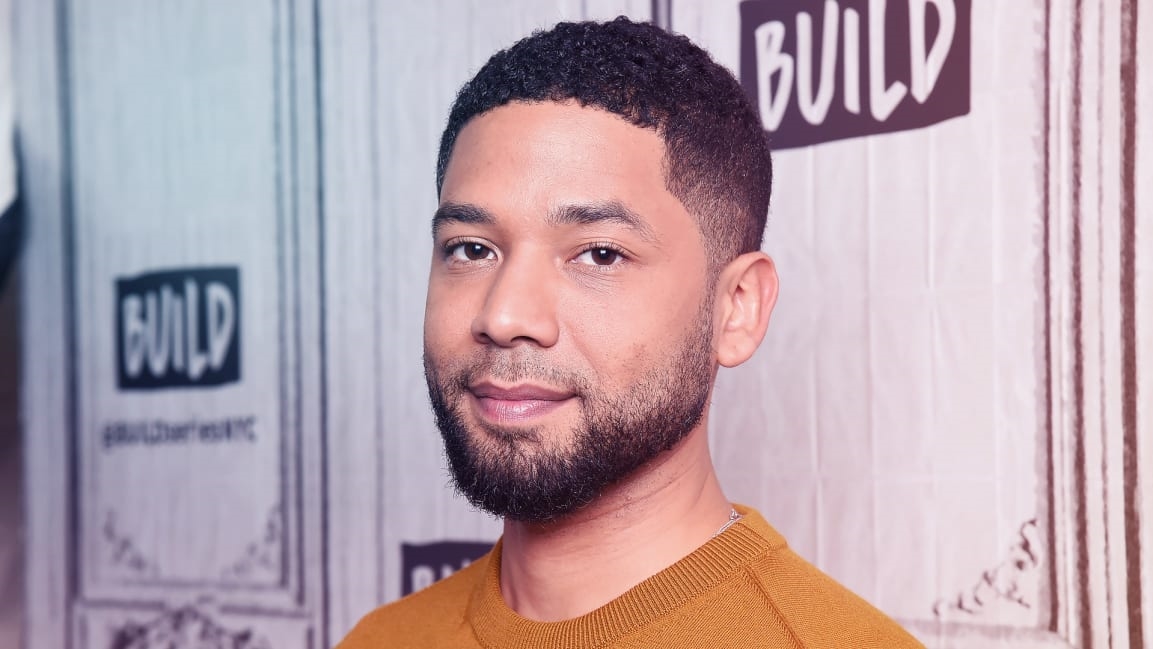What your reaction to the Jussie Smollett story says about you
In the end, like so many other miscalculated disasters, it was all about money.
Jussie Smollett reportedly paid two Nigerian brothers to dress up in MAGA finery and stage a hate crime against the black, gay Empire actor–in order to raise his profile and, in turn, raise his $65k-per-episode salary. It was a Dumb Coen brothers-style scheme, and it was destined to fail. Because Smollet was a star, though, his Thursday morning arrest for felony disorderly conduct concludes weeks of media coverage, which saw an initial outpouring of support curdle into suspicion and finally disdain. The actor did succeed in raising his profile, albeit likely not in the way he’d intended. Smollett is now notorious, and it’s hard to imagine where his career in entertainment goes from here–aside from a possible Dancing with the Stars stint in two years. At the moment, everybody is talking about him, and what they’re saying says a lot about themselves.
For politicians like Nancy Pelosi and Adam Schiff, it’s not what they’re saying (yet), but rather what they are attempting to un-say. Both the House Speaker and the congressman expressed support for Smollett as news of the alleged attack broke, and both have since deleted their tweets. Neither has spoken publicly about the matter since, and the reason seems obvious: They are very busy with more important matters. As explosive a revelation it is to discover that Smollett was a grifter who used racial, homophobic violence as a prop in his fiction, it’s not an urgent matter of national security or policy. If either Pelosi or Schiff are asked about the incident, they will then officially owe a response, but at this point a retraction of initial support is sufficient. Despite what outlets like the New York Post seem to believe, nobody owes an apology for believing a victim of a hate crime who filed a police report.
Other far right media outlets have responded to the Smollett revelations by questioning why anybody ever believed the purported victim at all. This skepticism takes issue with the central premise behind Smollett’s fabrication: that it’s easy to believe Trump supporters would carry out a hate crime. People like Tucker Carlson simply ignore the fact that hate crimes in America rose by 17% following the 2016 election, or that some protestors at the deadly Charlottesville Unite the Right rally wore MAGA hats, or even the fact that on the morning Smollett turned himself in, a lieutenant in the U.S. Coast Guard was caught planning to possibly murder some of Trump’s favorite targets. If Fox News or Breitbart are so aggressively unsurprised that Jussie Smollett faked his own assault, one imagines they must have been shaken to their very cores when the cartoonishly pro-Trump van connected to last fall’s pipe-bomber turned out to be real. (If they were indeed shaken, we’ll never know–they barely talked about it.)
Using the Smollett story to lash out at those who would dare believe it is a desperate way to score easy points against anyone Trump has designated as Fake News. And when it comes to attempting to score easy points, nobody is as ready to ball as First Son Donald Trump Jr., who as of three days ago had tweeted about Jussie Smollett 35 times. Junior can’t stop gloating about Smollett’s fraud because he considers his father and the MAGA base to be the true victims here, rather than the victims of actual hate crimes who risk not being believed now. He may be constitutionally incapable of empathy.
Has anyone set the over-under on how long it will take Jussie Smollett and his Hollywood/Media enablers to find a way to blame “America” and “society” for his disreputable actions? We all know it’s only a matter of time.
— Donald Trump Jr. (@DonaldJTrumpJr) February 20, 2019
And of course, Trump the Elder couldn’t resist getting in on the action as well. For a man who has left a trail of alleged victims on his path to the White House, and who has vigorously defended other accused predators since, finding a false accuser connected to him in any way is a godsend.
.@JussieSmollett – what about MAGA and the tens of millions of people you insulted with your racist and dangerous comments!? #MAGA
— Donald J. Trump (@realDonaldTrump) February 21, 2019
Trump doesn’t see all accusers as liars, though. As his full-throated belief in Al Franken’s alleged misconduct can attest, Trump is the embodiment of someone who only believes victims when it’s politically advantageous. Look for Smollett to become a fixture in his 2020 campaign rallies going forward–or at least until the story ceases to provoke a reaction from his crowds.
Others on the right are gloating about this perceived victory over Fake News by making false equivalences.
Suspended?! The guy is being formally charged with a crime and he *might* be SUSPENDED!?
‘Member when @therealroseanne was fired for a tweet? I ‘member. https://t.co/VwqQSQejdo
— Jared Monroe (@TheJaredMonroe) February 21, 2019
The reports are that they’re negotiating a surrender by Smollett. Negotiating? Send in the troops like you did on Roger Stone. What, this little dirtbag needs an invitation to be arrested? #JussieSmollett
— James Woods (@RealJamesWoods) February 21, 2019
The truth, however, is that there is no 1:1 comparison to be made. To be clear, Smollett should be written off of Empire as expediently as possible–and he may still be yet–but comparing the outrage around Roseanne Barr’s racist tweet with what is unfolding around Smollett’s elaborate, criminal deception is a pointless exercise. So is the even less relevant comparison between how Roger Stone and Jussie Smollett were arrested. (That’s not even comparing apples and oranges; it’s comparing octopi and Jell-o pudding pops.) Anyone looking for Hollywood and the left to coddle Smollett in the wake of his story’s denouement, though, is in for a surprise.
For the most part, the people who believed Jussie Smollett aren’t excusing his behavior or apologizing for believing him. They are upset and heartbroken, because of what this whole incident portends for the future–a tempting citation for anyone looking to cast doubt on a victim. Obviously, some of the people who got behind Smollett used his “attack” as a selfish means for attacking the president and his followers. But most of Smollett’s believers found his story credible for a number of reasons, including personal experience in some cases, or are simply inclined to believe all victims, regardless of possible agenda.
I am sad for Jussie Smollett. I am sad that people will use his allegedly false report to discredit other victims and survivors of hate crimes. I am sad that queer and trans people of color and Black people are being attacked and killed for simply existing. I am just sad.
— Evette Dionne ??????????? (@freeblackgirl) February 21, 2019
Instead of deleting this comment, I’m going to own it and say: How dare you, Jussie Smollett, use and trivialize racism and violence to make a name for yourself while others work hard to earn their name and others face violent attacks every day. My apologies for falling for this. https://t.co/Te3NlP1Pw7
— Chris Sampson (@TAPSTRIMEDIA) February 21, 2019
For every Jussie Smollett, there’s at least 100 true victims who don’t come forward out of fear of not being believed. But if we always “believe survivors” without evidence, we do a grave injustice to these real victims. We must always investigate and believe in the evidence.
— Eugene Gu, MD (@eugenegu) February 21, 2019
If you believe victims of hate crimes or sexual assault all the time, the worst that’s going to happen is that in the rare instance when a victim proves to be a liar, you’ll feel deceived and gullible. It’s a small price to pay for helping the 99.5% of victims who aren’t lying. Believing victims only when it’s in your own interest to do so is its own form of abuse.
(22)



